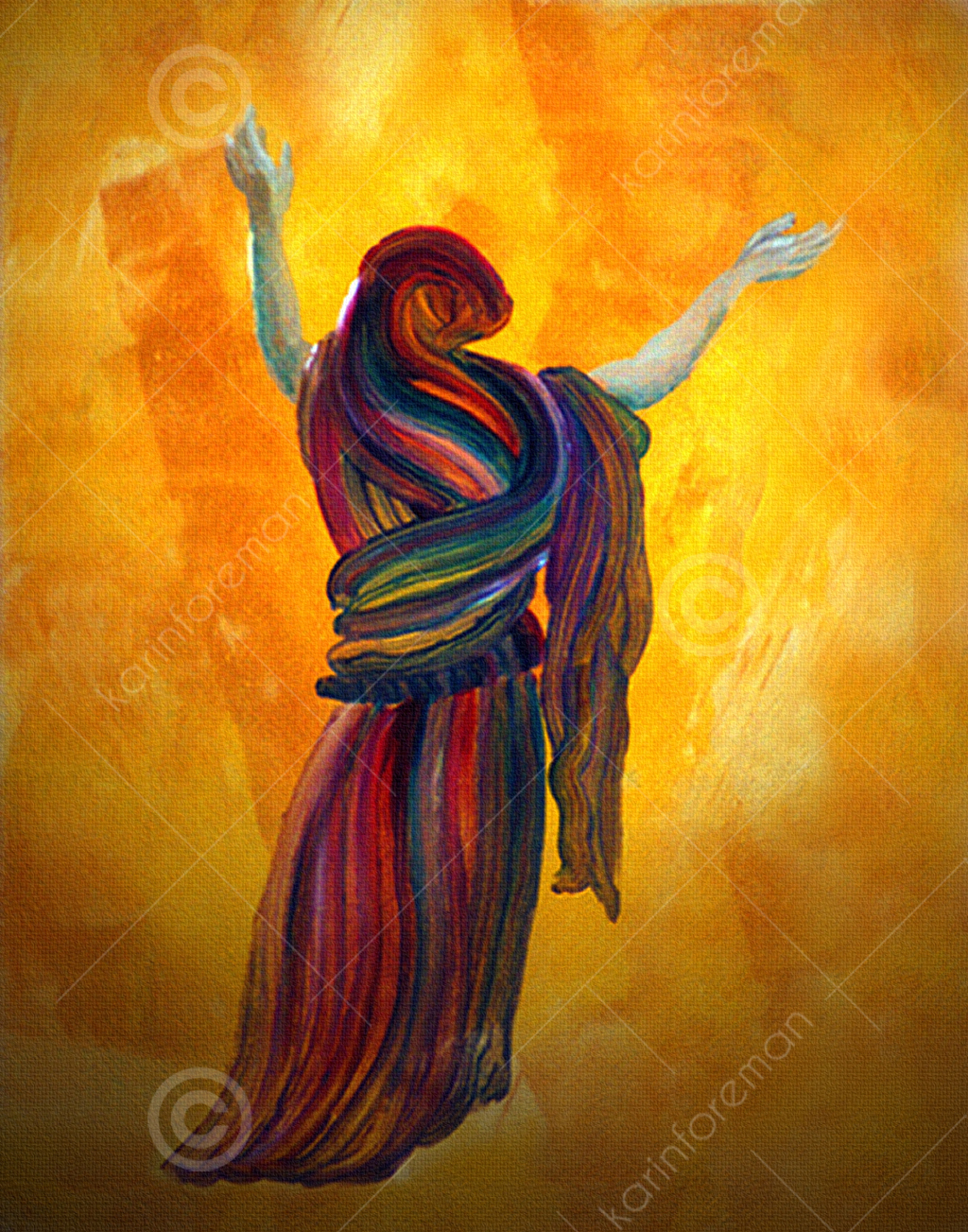Monotype (Ink on Arches Printmaking Paper)
Monotyping is a type of printmaking made by drawing or painting directly on a smooth, non-absorbent featureless surface. It doesn’t contain any permanent marks. The surface, or matrix, was historically a copper etching plate, but in contemporary work it can vary from zinc or glass. I used acrylic glass. The image is then transferred onto a sheet of paper by pressing the two together, using a printing-press. The inks I selected were water based, which requires the paper to be damp. Water based inks increase the range of tones by 10 percent whereas oil based inks are printed on dry paper and allow more contrast. A monotype is a single impression of an image resulting in one unique print called a “ghost print”. All articulation of imagery is dependent on that one unique inking.
The monotype process was invented by Giovanni Benedetto Castiglione (1609–64). He was an Italian painter and etcher who was also the first artist to produce brushed sketches intended as finished and final works of art. Some famous old masters who worked in monotypes were Rembrandt and Degas.
The background of “Praise” was painted with a palette knife . The figure then was added by overlaying a few essential colorful paint strokes. “Praise” is simply about praise. The image is very basic and straightforward, just like praise is uncomplicated and a basic expressing on focusing on G-d rather than self, entering into worship with Him and thanking Him for who he is and what he has done for us. Praise comes in many forms. Below are a few examples from scripture.
הלל Hallel (praise)
Hallel or hallal—the verb form is an exhortation to “praise”. The word Hallelujah הללויה (G-d be praised) comes from hallal and contains two elements הללו (plural) addressed to several people and יה (Yah). Examples of the word hallal are found in Psalm 113:1, “Praise (hallal) the L-RD. Praise (hallal) the L-RD, you his servants; praise (hallal) the name of the L-RD.” As well as in Psalm 149:3, “Let them praise (hallal) his name with dancing and make music to him with timbrel and harp.
ידה Yadah (to throw/extend hand)
Yadah comes from the root word yad which means “to throw out the hand” or “the extended hand.” Hence “to worship with extended hand”. The word yadah is found in Psalm 43:4 Then I will go to the altar of G-d, to G-d, my joy and my delight. I will praise (yadah) you with the lyre, O G-d, my G-d.
תודה Towdah/Todah (thanksgiving)
Todah is a thank offering or sacrifice of praise. Psalm 50:14, “Offer unto G-d thanksgiving (todah) and pay your vows unto the most High.” Psalm 50:23, “Whoso offers praise (todah) glorifies me.” Jer. 33:11, “The voice of joy, and the voice of gladness, the voice of the bridegroom and the voice of the bride, the voice of them that shall say, Praise (yadah) the L-rd of hosts: for the L-rd is good for his mercy endureth forever and of them that shall bring the sacrifice of praise (todah) into the house of the L-rd.”
שבח Shabach (to praise, laudation)
Shabach means, “to shout, a loud adoration, to command, to triumph.” Psalm 145:4, “One generation shall praise (shabach) your works to another, and shall declare your mighty acts. Psalm 63:3 “Because your loving kindness is better than life, my lips shall praise (shabach) you.”
ברך Barak/Barukh (to bless/kneel)
Barak means to kneel down, to bless G-d as an act of adoration. Psalm 95:6, “O come, let us worship and bow down: let us kneel (barak) before the L-RD our maker.” 1 Chr 29:20. “Then David said to all the assembly, “Now bless (barak) the L-rd your G-d.” And all the assembly blessed (barak) the L-rd, the G-d of their fathers, and bowed low and did homage to the L-rd and to the king.” Job 1:21, “The L-rd gave, and the L-rd has taken away; blessed (barak) be the name of the L-rd.”
זמר Zamar/Zemer (to sing, to play a musical instrument)
Zemer means “to pluck the strings of an instrument, to sing, to praise; a musical word which is largely involved with joyful expressions of music with musical instruments. Psalm 21:13 Be you exalted, L-RD, in your own strength: so will we sing and praise (zamar) your power.” Psalm 57:9 “I will give thanks (yadah) to you, O L-rd, among the peoples; I will sing praises (zamar) to You among the nations.
תהלה Tehillah (a song of praise, glory, splendor, renown, laurels)
Tehillah is derived from the word hallel and means “the singing of hallels, to sing or to laud; perceived to involve music, especially singing; hymns of the Spirit. Psalm 22:3, “Yet You are holy, O You who are enthroned upon the praises (tehillah) of Israel.” Psalm 34:1, “His praise (tehillah) shall continually be in my mouth.
